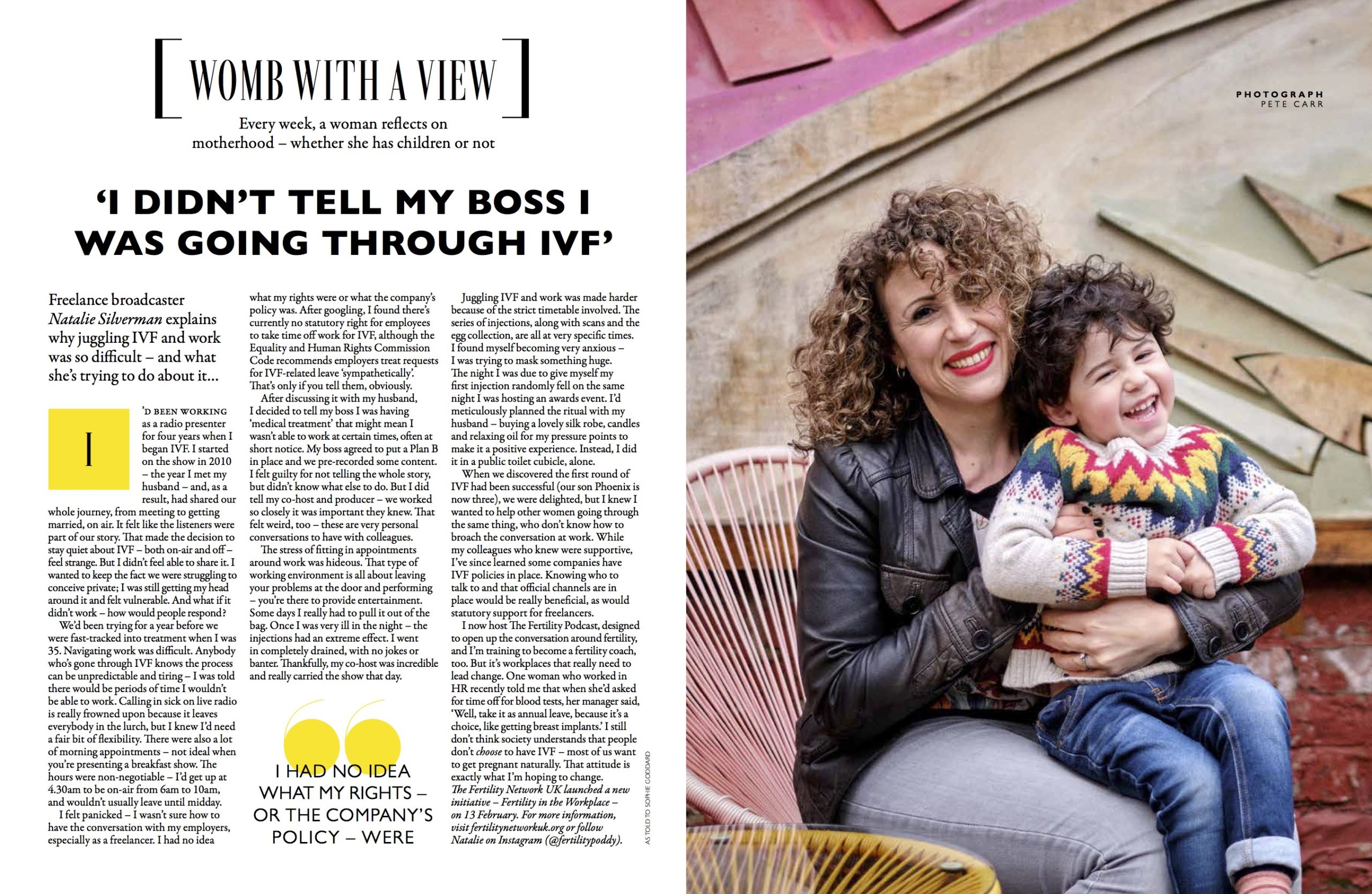Well, this week was a brilliant one for The Fertility Podcast as I was featured in Grazia.
I wanted to highlight the important issue of fertility in the workplace, and the new initiative that Fertility Network UK designed to help employers support employees facing fertility challenges.
Research shows having a supportive fertility in the workplace policy is good for business and employees – levels of distress associated with fertility treatment are reduced and employees are more likely to be productive and remain in work. Chief executive Aileen Feeney explained how ‘Fertility treatment is on the increase with approaching 68,000 treatment cycles carried out every year in the UK and 1 in 6 couples (3.5 million people) affected, yet the majority of employers do not have a workplace policy providing the vital support employees going through fertility treatment need.’
In my Grazia article, I explained how I had no idea who I could speak to about what I was about to go through with my treatment. As a radio presenter I was a freelancer and had never been told about the company’s HR policy and I found a name via the company intranet and made a call asking for advice. I wasn’t told about an IVF policy and was advised to tell my boss something, so he didn’t think I was looking elsewhere for work.
So I did, I said I was having medical treatment and it would mean I had to have some time off, at short notice.
This is tricky in a live radio environment as you can’t really leave your co-host in the lurch. So I decided to tell my co-host and producer what was actually going on and we worked on a backup show for when I wasn’t able to come in – ie., when I had to take the trigger, shot and go in for egg collection. It was stressful, my job was for me to entertain and be upbeat. I didn’t always feel like being so during the treatment. Luckily it worked first time, so I didn’t have to endure the emotions of a failed cycle whilst being on air.. instead once I was ready I shared my news with my listeners. The conversation I had with Grazia talks more in-depth about the experience and I’m glad to have spoken out about it as I think whether you are a full-time staff member or a freelance, like in my case you should know what you are entitled to.
In contrast, Hannah Pettitt Malafaia 42, experienced the benefits of a fertility in the workplace policy: ‘It is really important to have support and guidance for fertility treatment in the workplace. Having a supportive workplace really does help people. It gives them a positive and flexible environment to be in when they are going through such a difficult time as it can be both physically and mentally stressful. The nature of IVF treatment requires some flexibility in regards to timing and appointments so having this flexibility at work is really important.’
In the UK, employees have a right to absences for pre-natal and for post-natal care and the right to request flexible working but preconception care is not a statutory right. Further info is available in Fertility Network’s employment issues factsheet
I will be talking about this more, this weekend at The Fertility Show where I am hosting the ‘Let’s Talk Fertility’ stage talking with Aileen Feeney and another lady, Hortense Thorpe who I spoke to about her experience of going through IVF whilst working for a big corporate firm and you can hear that chat here
Have you struggled through treatment at work? Have you had to quit your job? I’m working on sharing more of your stories in future podcast episodes so do get in touch via natalie@thefertilitypodcast.com


